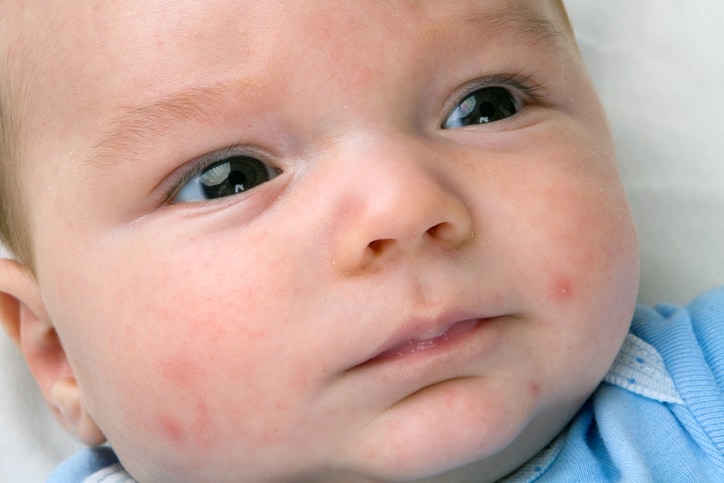Contents:
Medical Video: Anxiety Disorders : High Anxiety Symptoms
Almost everyone has experienced stress. Whether it's because of office work tight deadlines, family conflicts or partners, so trivial matters such as stress facing traffic jams in the capital city. The fear, anxiety, and suffocating anxiety caused by stress can be painful and endless.
This is where you have to start being careful. Severe stress that is increasingly becoming and not immediately treated can lead to a number of chronic psychiatric disorders, such as depression and anxiety disorders. And if this chronic disorder is not handled properly, both can greatly damage the quality of your life. It is important for you to be able to recognize the difference between stress, anxiety disorders, and depression in order to get the right help before it's too late.
Is it stressful?
Stress is a form of self-defense reaction when you are in a stressful situation. Although not liked, stress is actually a part of human primitive instincts to keep us safe and alive.
Once you are faced with a stressful situation, for example the presentation of a work project next week, your body feels it is a danger or threat. To protect you, the brain will begin to produce a number of hormones and chemical compounds such as adrenaline, cortisol, and norepinephrine which trigger a "fight or flight" reaction in the body.
Sometimes, stress can provide an energy boost and increased concentration so that you can respond to the source of pressure effectively. But more often, stress actually makes the brain flood the body with these three hormones so that you continue to feel frantic, anxious, and anxious. At the same time, blood will be focused to flow to the body parts that are useful to respond physically such as the legs and arms so that brain function decreases. This is why many people find it difficult to think clearly when haunted by stress.
What are anxiety disorders?
Everyone must have experienced stress and anxiety at least once in a lifetime. The difference is that stress is the body's response to threats in random situations that can endanger you. Anxiety is your reaction to stress.
Familiar with the sensation of heartburn, dizziness, heart palpitations, rushed breath, and cold sweat when you are filled with worries before speaking in public, for example, or waiting to be called for a job interview? Here are some signs that you are stressed and / or anxious. Usually this series of symptoms will subside as soon as you feel relieved or complete your task. This means that the level of psychological pressure you receive is still quite "healthy" so that you are still able to handle the situation properly.
Anxiety becomes a chronic psychological disorder when you are constantly hit by irrational fears or fears of all kinds of things that you consider to be a big threat, even though they do not pose a real danger. Anxiety is a psychiatric disorder recognized by the medical world. Anxiety disorders are conditions that can be diagnosed by a doctor based on a collection of symptoms that you feel on an ongoing basis.
Living with an anxiety disorder makes you continue to experience stress even after the threatening event you've passed. And even when you are not met with any stressors, that anxiety will still be always unconscious - haunting you with uninterrupted anxiety throughout the day. Anxiety disorders can be experienced every day with the appearance of very clear symptoms, such as social phobia, or come suddenly without reason such as panic attacks or anxiety attacks. This means that anxiety disorders do not have to come to the surface in response to certain experiences / situations.
What is depression?
Depression is a mental illness characterized by worsening moods, feelings, stamina, appetite, sleep patterns, and the concentration level of the sufferer. Depression is not a sign of weakness or character defects. Depression also cannot be equated with feelings of sadness or grief, which will usually improve over time - although in some cases, depression can be triggered by ongoing grief or severe stress.
Stress and depression affect you in the same way, but depressive symptoms are far more intense and defeated, and last for at least two weeks or more. The Depression caused a drastic change in the great mood that caused a sense of despair, suffering, and even an unwillingness to continue living. Depression is one of the most common mental illnesses in society today, and it is estimated that one in five people in the world can experience depression at some stage in their lives.
So, what distinguishes stress, depression, and anxiety disorders?
Although there are some overlapping characteristics between stress, depression, and anxiety disorders, these three emotional turmoil come from very different places. The stress that we experience in everyday life is related to frustration and overwhelming, while anxiety and depression disorders can be rooted in anxiety, fear, and despair that have no definite cause - although they may be triggered by many factors, including genetics, biology and brain chemistry , life trauma, to chronic stress that is sustainable. The main difference between the three is feeling helpless.
When stressed and anxious, you know exactly what you are dealing with, namely life challenges that you encounter everyday (even if they occur randomly) - work deadlines, financial bills, household matters, etc. But sometimes, what makes you stress can also come from within, triggered by an imagination that is too active or is not thinking clearly. Stress and anxiety will disappear when you make priorities and handle them one by one. In the end, you can find a way out of every problem and get back on your day.
Meanwhile, living with an anxiety or depression disorder makes you powerless to know what is your concern, so the reaction is the problem. Both of these psychological disorders occur continuously without having to respond to certain experiences or situations, and tend to last long (often up to monthly or even yearly). Both can greatly limit your function as a human being. You may feel tired constantly and lose motivation / enthusiasm for activities such as work, eat, socialize, study, or drive like other people.
All three are psychological disorders that need to be addressed. It not only affects mental health, but also can affect your physical health in the long run. However, depression and anxiety disorders are not something you can heal yourself, so it's important to get medical help as soon as possible. Fortunately, there are a variety of treatment options available to manage each symptom.












